When death is near, every word counts, or so they say. But for these criminals, their last words were anything but ordinary. From dark humor to cryptic statements, their last utterances left a mark, adding a bizarre twist to already notorious lives. Let’s dive into the unsettling yet fascinating parting words of the final words of some of the most infamous criminals.
Jimmy Glass, 1987 (Louisiana)
“I’d Rather Be Fishing”

With these almost nonchalant words, Jimmy Glass met his end in the electric chair. Convicted of murdering an elderly couple during a Christmas Eve jailbreak in 1982, Glass’s crime left the public horrified. Yet, in his final moments, he chose to invoke a simple, everyday wish—perhaps an attempt to distance himself from the brutality of his actions. Was this a reflection of regret, or just an odd quip to cut the tension? We’ll never know.
Robert Alton Harris, 1992 (California)
“You can be a king or a street sweeper, but everyone dances with the Grim Reaper.”
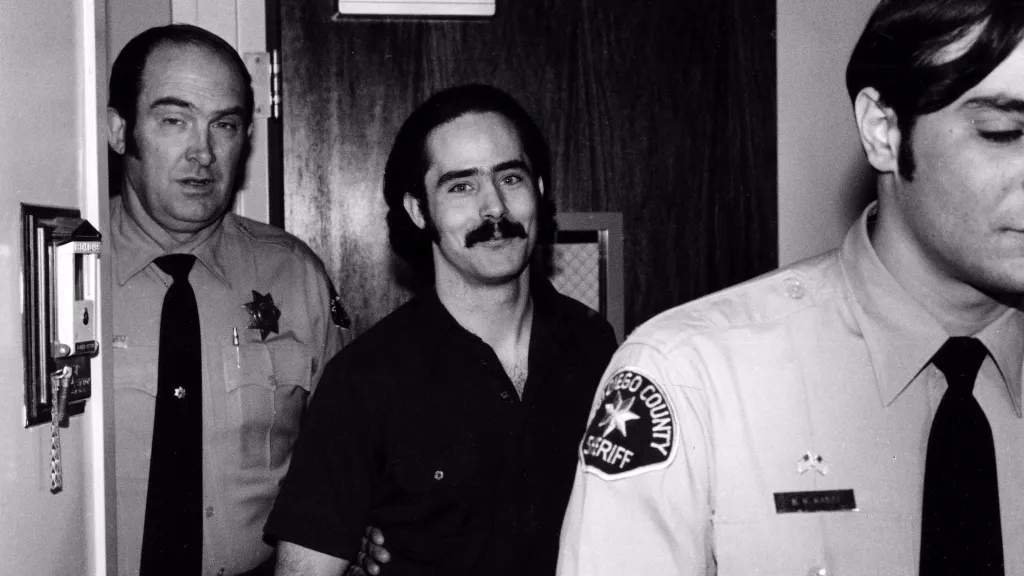
Robert Alton Harris had an air of poetry in his final moments, quoting a line that could almost be pulled from a Shakespearean tragedy. Convicted of the cold-blooded murder of two teenage boys, Harris used their car for a bank robbery before being apprehended. His theatrical parting line reminds us all of our mortality—but his heinous crimes made sure his memory wouldn’t soon fade.
Don’t miss The Best True Crime Documentaries to Stream in 2025
Jeffrey David Matthews, 2011 (Oklahoma)
“I think that governor’s phone is broke. He hadn’t called yet.”

It’s hard to know whether Jeffrey David Matthews was genuinely holding out hope for a last-minute reprieve or if he was mocking the process that delayed his execution three times. Convicted of killing his great uncle during a robbery, Matthews’ final sarcastic words added a bitter twist to his end, leaving a sour taste of injustice.
Barbara Graham, 1955 (California)
“Good people are always so sure they’re right.”

Known as “Bloody Babs,” Barbara Graham’s chilling final words stung with bitterness. She was convicted of murdering an elderly widow during a botched robbery, a crime that earned her the gas chamber. Her cynical comment seems to reflect disdain for the moral certainty of her accusers, casting doubt even in her final breath. But for Graham, there would be no redemption—just infamy.
George Appel, 1928 (New York)
“Well, gentlemen, you are about to see a baked Appel.”
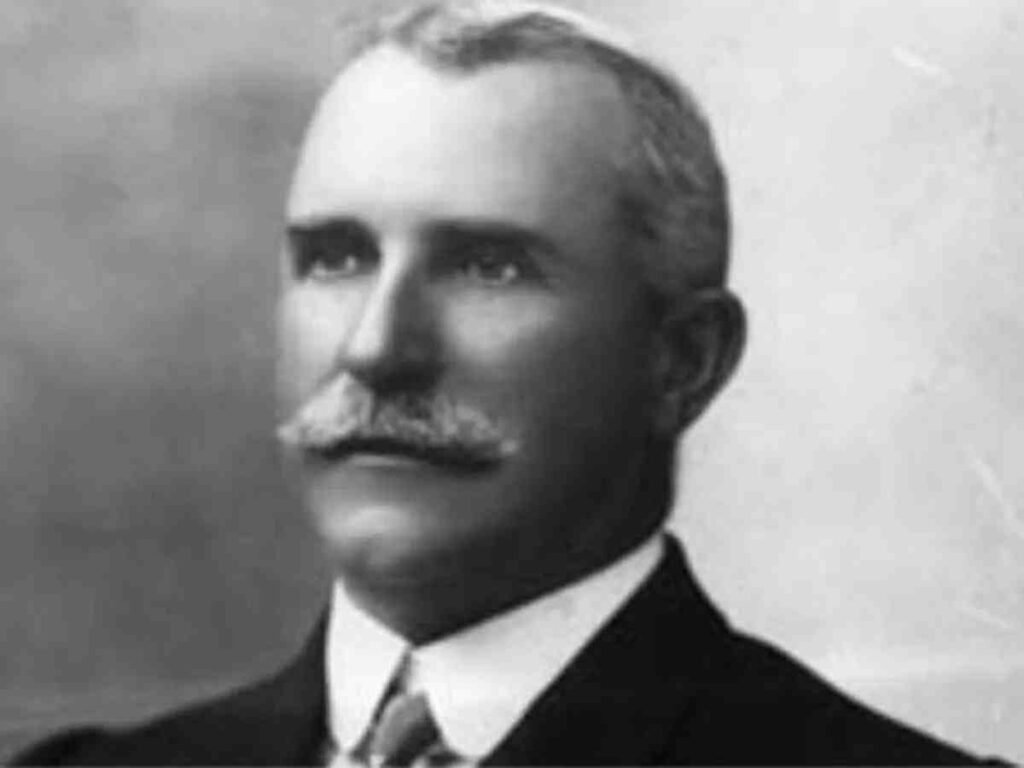
Convicted cop killer George Appel chose gallows humor, literally, as his final jest before facing the electric chair. His pun might have been a way to defy the gravity of the situation, but it left a lasting legacy that eclipsed the horror of his crime. Sometimes, all it takes is one punchline to immortalize your exit.
Carl Panzram, 1930 (Kansas)
“Hurry it up, you Hoosier bastard. I could kill 10 men while you’re fooling around!”
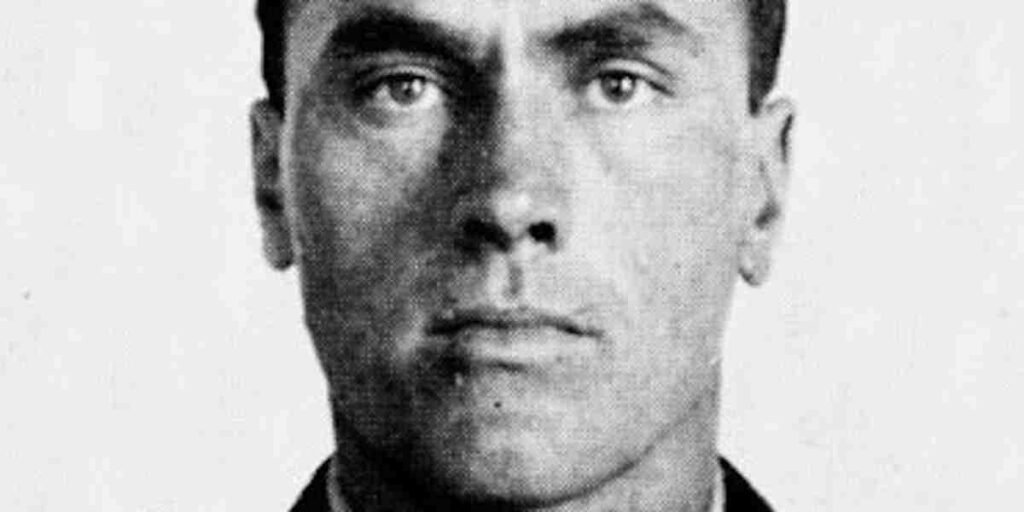
True to form, Carl Panzram’s last words were as violent and defiant as his life. The serial killer, who claimed to have murdered 21 people, spat these chilling words at his executioner. A career criminal and confessed rapist, Panzram never showed remorse. Even in his final moments, he stayed true to his brutal nature—taunting his captors with his unapologetic hatred for life.
James Lewis Jackson, 2007 (Texas)
“Warden, murder me.”

In his final seconds, James Lewis Jackson’s grim request echoed the cold brutality of his crime. Convicted of strangling his wife and two stepdaughters in a drug-fueled rage, Jackson was ready to meet his end. His resignation to death, coupled with his eerie declaration of readiness, made his final moment as dark as his life had been.
Robert Charles Towery, 2012 (Arizona)
“I love my family. Potato, potato, potato.”
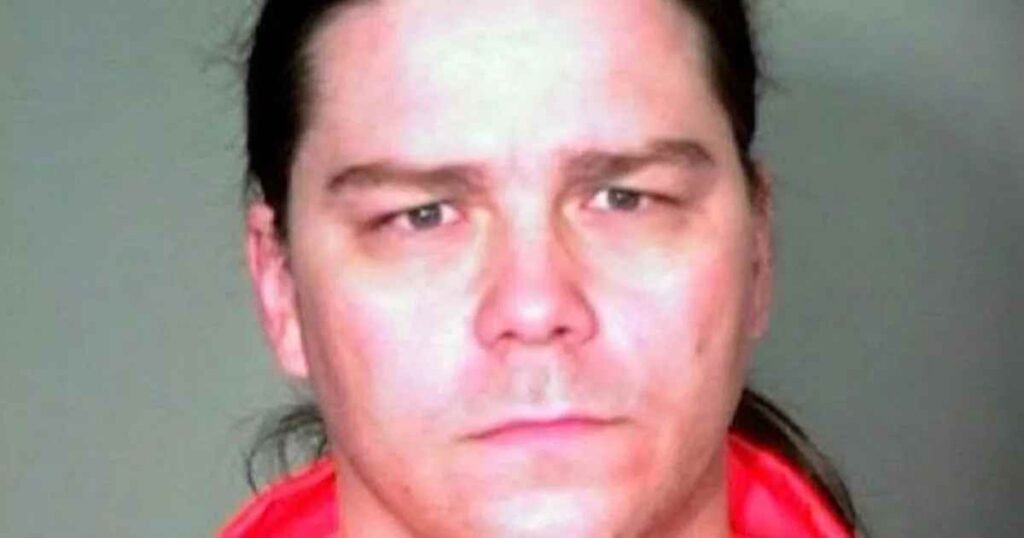
Robert Charles Towery’s last words carried a touch of the personal and the bizarre. Convicted of murder during a robbery, Towery’s apology to his victim’s family wasn’t the strange part. It was the cryptic “potato, potato, potato”—a reference to the sound of a Harley-Davidson motorcycle—an inside message for his nephew. In an odd way, it was a personal note slipped into a moment of public judgment.
George Engel, 1887 (Illinois)
“Hurrah for anarchy! This is the happiest moment of my life.”

As a man devoted to the anarchist cause, George Engel left this world with a defiant cheer. Convicted for his part in the Haymarket affair, which ended in the death of several police officers, Engel’s words were a final declaration of his ideals. To some, he died a martyr; to others, a murderer. But there was no doubt that, even at the gallows, Engel never wavered from his beliefs.
Aileen Wuornos, 2002 (Florida)
“I’m sailing with the Rock, and I’ll be back, like Independence Day with Jesus. June 6, like the movie.”
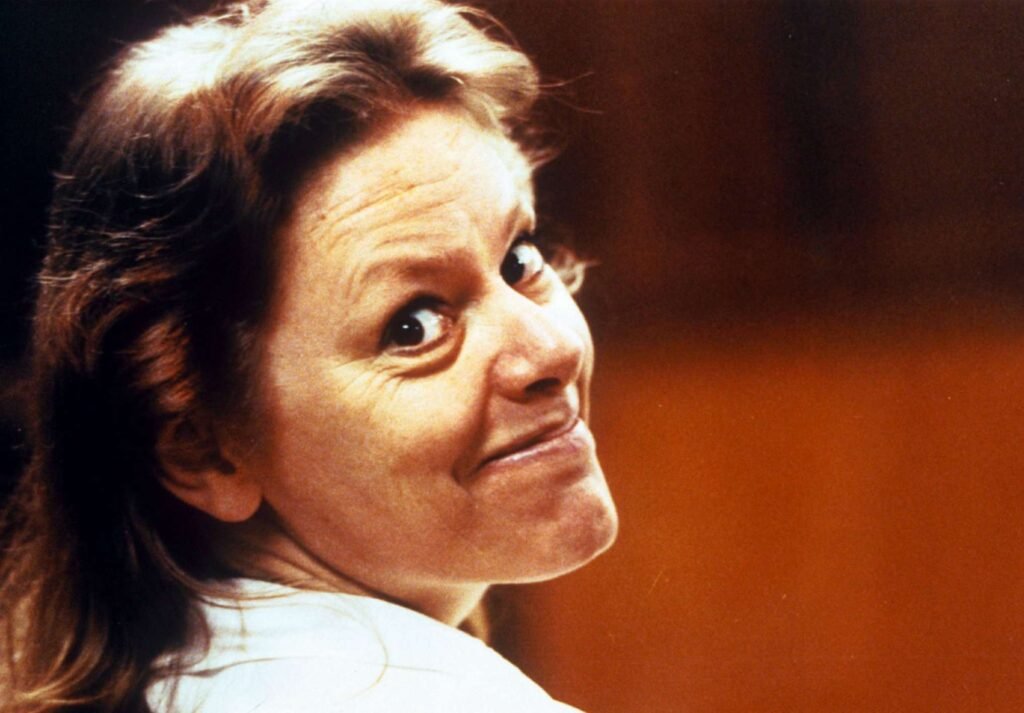
Aileen Wuornos, the subject of the film “Monster”, remained unpredictable to the very end. Convicted of killing seven men, Wuornos’ life of violence and hardship culminated in these cryptic last words. A bizarre mix of pop culture and religious reference, Wuornos left everyone guessing as to what she truly meant, proving she would remain an enigma even in death.
Clarence Ray Allen, 2006 (California)
“Hoka Hey, it’s a good day to die.”

At 76 years old, Clarence Ray Allen was one of the oldest people executed in the United States. His final words, borrowing a Native American phrase, exuded an eerie calmness as he faced lethal injection. Convicted for orchestrating murders from behind bars, Allen accepted his fate with a kind of warrior’s resolve, showing no signs of fear or regret.
Jack Jones Jr., 2017 (Arkansas)
“I love you like a child.”

Convicted of the brutal murder of a woman and the attempted murder of her daughter, Jack Jones Jr.’s last words were a strange plea for understanding. His claim of love for his victim, the surviving child, stands in stark contrast to the horror of his crime. Whether it was an attempt at reconciliation or a final manipulation, those words hang heavy with unsettling contradictions.
James French, 1966 (Oklahoma)
“How about this for a headline for tomorrow’s paper? French fries.”
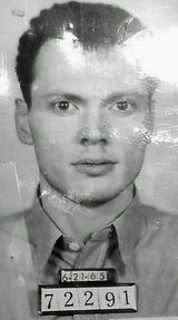
James French wasn’t one to go quietly. Convicted of murder, French had one goal—to force the state to execute him. His quip before the electric chair was a cynical play on his name, ensuring that his death would make headlines, if only for its grim humor. Sometimes, gallows humor is the last resort of a life lived on the edge.
Johnny Frank Garrett, 1992 (Texas)
“The rest of the world can kiss my ass.”

Convicted of raping and murdering a nun, Johnny Frank Garrett’s final words were a bitter and unapologetic farewell. Despite claims of innocence and controversy surrounding his mental health, Garrett showed no signs of repentance. His last words were a defiant curse to a world that had condemned him, leaving a bitter note in his tragic story.
Ted Bundy, 1989 (Florida)
“Give my love to my family and friends.”

Ted Bundy’s final words were shockingly ordinary for a man whose life was anything but. Bundy, one of America’s most notorious serial killers, left behind a trail of terror, confessing to the murder of 30 women across seven states. His charm masked his sadistic tendencies, enabling him to abduct and murder with chilling efficiency. On the day of his execution, Bundy’s request seemed more like the parting words of a troubled neighbor than a remorseless predator, reminding us that even monsters can wear a human face.
John Wayne Gacy, 1994 (Illinois)
“Kiss my ass.”

John Wayne Gacy’s final words were as crude and unapologetic as the man himself. Known as the “Killer Clown,” Gacy preyed on young boys, luring them into his suburban home where he tortured and killed at least 33 victims. Even in his last moments, Gacy refused to show remorse, summing up his life of depravity with a vulgar quip. His parting words ensured that he would be remembered as a man who defied morality until the bitter end.
Patrick Bryan Knight, 2007 (Texas)
“Not all of us are innocent, but those are. I said I was going to tell a joke. Death has set me free. That’s the biggest joke.”

Patrick Bryan Knight had a plan for his final moments—he wanted to leave people laughing. After kidnapping and murdering his neighbors, Knight became fixated on finding the perfect joke to deliver as his last words. But when the time came, he abandoned the comedy routine, shifting the spotlight onto his belief that some death row inmates were innocent. In the end, Knight’s final words were more somber than expected, offering a dark reflection on guilt, innocence, and the cruel irony of life.
Kimberly McCarthy, 2013 (Texas)
“This is not a loss, this is a win.”

Kimberly McCarthy’s final moments were full of faith and defiance. Convicted of stabbing her elderly neighbor to death during a robbery, McCarthy’s crime was fueled by addiction, but her last words focused on redemption. As the 500th inmate executed in modern Texas history, McCarthy framed her death not as a defeat, but a victory. Her belief in her journey to the afterlife allowed her to face death with what seemed like serene confidence.
Thomas J. Grasso, 1995 (Oklahoma)
“I did not get my Spaghetti-O’s, I got spaghetti. I want the press to know this.”
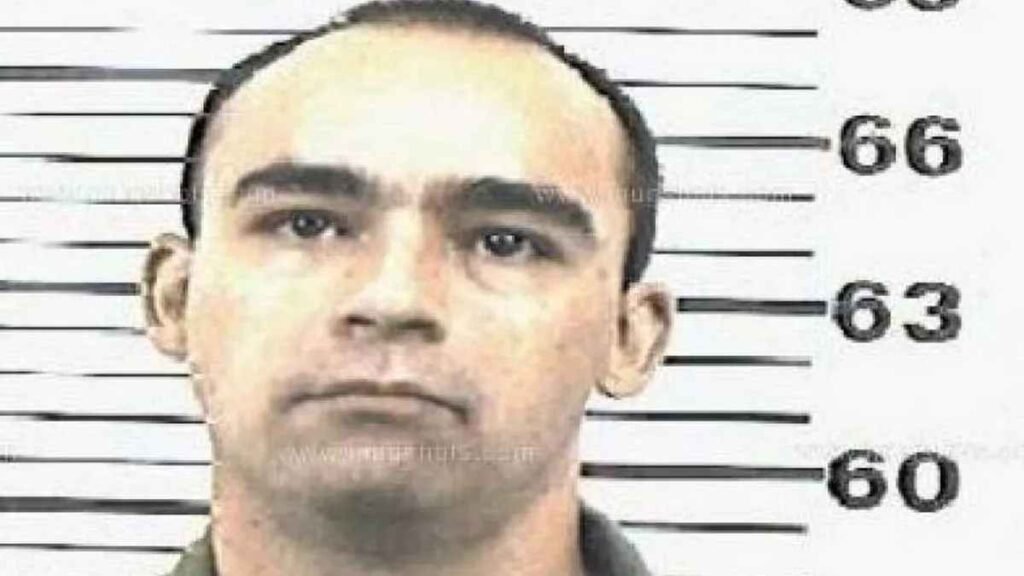
Thomas J. Grasso’s last words were less about regret and more about his final meal. Convicted for the gruesome murders of two elderly people, Grasso’s demand for culinary accuracy—Spaghetti-O’s instead of plain spaghetti—became his final gripe. It’s an absurd detail in the context of a life marked by violence, yet somehow fitting for a man whose last thoughts were consumed by what was on his plate, not what was in his heart.
After these shocking last words from the mouths’ of notorious criminals, let’s explore the most intriguing unexplained deaths in history and discover the mysteries and theories behind these baffling cases.

